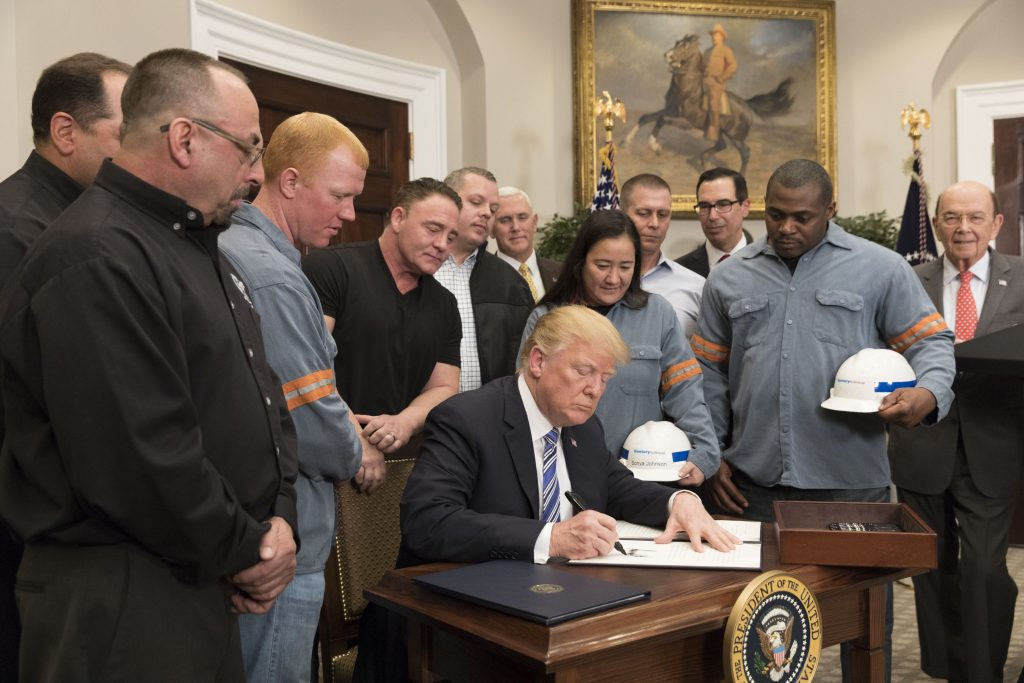Rent-Seeking Is Alive and Well in Trump’s Tariffs
Are you a small American manufacturer, fighting to stay on the right side of your already-thin profit margin, who imported steel goods from abroad before the Trump administration’s 25 percent tariff? Well, help is on the way! All you have to do is apply to the Commerce Department for an exemption to the tariff!
How Regulation Backfires
All you’ll need to do is answer dozens of questions to establish an airtight case that the goods you’re after aren’t produced domestically of a “satisfactory quality” or in a “sufficient and reasonably available amount.”
Oh, and one other thing. American steel suppliers get to “object” to your request, akin to nicely asking the government to force you to buy from them or suffer the 25 percent penalty. The Commerce Department says it’s granted twice as many exemptions as it’s rejected, so you’re probably in the clear … unless giant steel manufacturers Nucor or U.S. Steel take an interest in your case. The government has denied all of the exemptions to which they’ve objected.
Nucor and U.S. Steel’s perfect batting average becomes easier to understand, though even more disheartening, when one learns that both companies have close ties to Commerce Department officials. Nucor is old friends with Trump trade advisor Peter Navarro, and helped finance a documentary the economist made several years back. And several officials in the administration used to work as U.S. Steel executives.
A Systemic Flaw
You might expect me to rail against the current administration’s corruption, cronyism, or mismanagement. But no, this is business as usual, no matter who is in office. It’s called rent-seeking, and it’s a systemic issue that’s nearly impossible to remove from government regulation.
The concept of rent-seeking was developed and defined by economists Gordon Tullock and Anne Krueger in the late 1960s and early 1970s. It basically refers to any situation in which a private firm expends resources manipulating the political or regulatory process to get itself a bigger piece of the pie, without growing the pie at all by doing something productive.
Of course, big firms are the ones with enough resources to interface with and influence the government. This leads to the ironic result that much government regulation, intended to discipline large corporations, ends up giving them yet another advantage.
Worse Than Corruption
I highly doubt that Trump administration officials sat in a smoke-filled room with Nucor and U.S. Steel executives and decided that latter had carte blanche to reject exemptions to the tariff. If that described most rent-seeking, it would be a solvable problem. Just elect the right people and make the right rules, and watch the corruption vanish.
But the rent-seeking process is far more subtle. These executives and government officials once worked together, probably went to school together, and have known each other their entire careers. Representatives of these large firms are just more likely to have the ear of those with political power. And that’s the biggest problem: nobody has to have particularly ill intentions to make rent-seeking a reality.
If the returns from influencing government are greater than those from actual production, executives and lobbyists from big companies will find their way to the right people. And presumably well-intentioned exceptions to the rules, like the exemption process with steel, just create more surface area onto which rent seekers can attach like barnacles on the hull of a ship.
Rent-seeking is a problem that those on the left should have to answer for whenever they propose extensive new regulations. But as the recent steel tariffs show, the problem knows no political ideology, and is an inevitable occurrence at the friction point between personal connections and power. The only way out, it would seem, would be to greatly reduce the very power to regulate.












